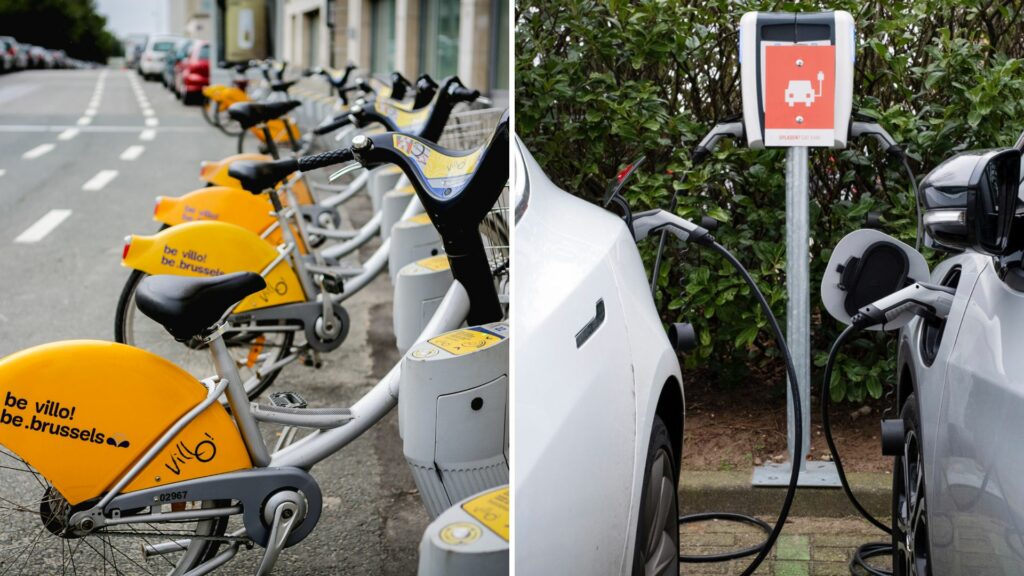Commuting to work by sustainable transport options still plays a minor role among Brussels residents, with many preferring the use of a private car.
While the percentage of trips by car in Brussels decreased since 2010, greener mobility options such as (shared) electric cars, public transport or cycling, are not always welcomed over travelling by private car.
The Belgian capital leads the top five European cities where sustainable commuting continues to be less favoured, the Urban Road Safety Index (URSI) by Cyclomedia showed. Almost 60% of residents here do not consider sustainability when organising their journeys.
They are followed by residents of Helsinki (54%), Antwerp (56%), Prague and Namur (55%). When it comes to the share of the population that prefers convenience over sustainability when travelling, residents of Antwerp (70%) come out on top in Belgium, followed by Namur (65%) and Brussels (58%).
"Despite the importance attached by society to sustainability, there is still a lot to be done in practice," said Cyclomedia's Bart Verbeeck. The cities that rank sustainability slightly higher are Barcelona (40%), Rome (37%) and Milan (37%).
Lack of charging points major barrier
When it comes to a switch to electric vehicles (EV) just under four out of ten residents of Antwerp (38%), Brussels and Namur (37% each) say they are more likely to consider buying an electric car than they were a few years ago.
The belief that this type of vehicle is more expensive remains a major obstacle for seven in ten residents in the three Belgian cities, even though the Vias road safety institute found that, over time, electric cars are more financially attractive.
The majority (73%) of Namur residents point to the lack of available charging points. but in Antwerp (71%) and Brussels (66%) this has also been highlighted as the main barrier. By contrast, only a quarter of residents of the German capital, Berlin, complained about a lack of charging points.
European Commission figures also show that Belgium is lagging behind its neighbouring countries (the Netherlands, France and Germany).
Brussels recently announced plans to accelerate its green transportation initiatives by expanding its charging infrastructure, promising 1,200 new charging points this year, and Flanders is aiming to provide the equivalent of 35,000 charging points by 2025. But in most places, the huge demand for such charging points has yet to be met. The greening of the car fleet is only adding to the pressure.
Related News
- 'Disrupting mobility': New podcast dives into personal stories of mobility start-up successes
- Schaerbeek reduces its pavements to create e-scooter drop zones
"Time is running out, so Flemish, Walloon and Brussels municipalities and businesses have a great opportunity to promote green transport by making sustainable options easier to access and more attractive," said Verbeeck.
He argued that this involves both extending the (public) charging infrastructure and promoting (shared) electric initiatives but also improving awareness of sustainable modes of transport and improving their availability.

